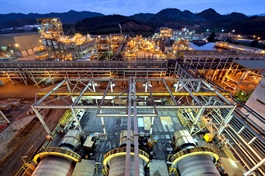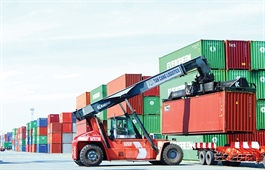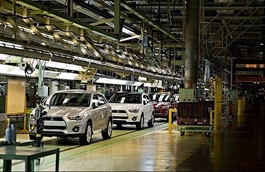Reigniting private sector interest in renewables
Reigniting private sector interest in renewables
Vietnam has reached new heights in renewable development over the years thanks to feed-in tariffs, however, it now faces challenges in spurring on clean energy for sustainable development. John Rockhold, chairman of the Vietnam Business Forum’s Power and Energy Working Group, spoke about auction mechanisms and the privatisation of transmission.

John Rockhold, chairman of the Vietnam Business Forum’s Power and Energy Working Group
|
In March, the Ministry of Industry and Trade (MoIT) proposed for approval a so-called “competitive pricing mechanism for solar PV power project developments” which outlines three auction options that apply in parallel for years to come.
Option one shall apply for the projects that are approved on the Power Development Plan VII (PDP7) and not eligible for the feed-in tariff rate policy. Option two is a substation-wise competitive auction which would apply for projects with a capacity range of 10 to 100 megawatt peak (MWp) for a pilot period during 2020-2021 and to be publicly practicable from July 2021.
The third option is project-specific bidding of investors. This model applies for large-scale solar photovoltaic potential sites (over 100MWp capacity). It is designed to effectively mobilise local investment capital, providing stimulus to the development of the financial services market and local supply of services, materials, and equipment.
With the first option, it is growing a public concern that the project owners with their schemes approved in PDP7 are financially disqualified and look to divest their projects to foreign investors. On the other hand, they have struggled and manipulated to “sell” their major or minor stakes in the project companies – whether or not they can competitively bid – simply in the mere hope that they would recall what they have spent previously on the permitting process and make marginal profits from this.
As soon as a local under-qualified investor has his project approved, he will reach out to sell his venture straightaway. Whether bidding or not will not stop him from doing this as it is already in his schedule. In this case, it would not fix the problem.
Meanwhile, the latter two options might help eliminate under-qualified investors to secure projects and sell them at a later stage as in bidding dossiers they have to prepare and declare details of their qualifications and capacities to bid.
Auctions also require that all information and costs are available on land, grid connection, compensation and more.
Currently, the national 220-500kV power grid is under the monopoly of the state in respect of investments to administration, operations, and maintenance. Special attention should be paid to the national monopoly of national power transmission grid in the national power plan because it relates to national energy security and national security.
It is important that grid security is maintained and we must be careful of solar, wind, and other smart converters being attached even at project level.
It is important to clearly define that the national power transmission system and power transmission grid and operation belong to the state, but allow private investor returns on investments. If there is an incident in an investor’s transmission network, it does not affect the operation management and energy security of the whole country.
Vietnamese investment also has capital constraints. Therefore, the state should focus on funding backbone systems and basic grid systems to ensure energy security and national security. The national electricity transmission network should not be operated by private or foreign investors – it must be a nationally-operated and maintained grid.
As for the extension lines that transmit electricity from private investors’ plants, it is advisable to get them involved, but it must be clearly defined in the law and explained that the grid is owned by investors, and must be included in the power project.
This is needed to avoid privatisation going too far, maybe even being taken advantage of, to reach an overly large proportion – to the point where losing control is out of the question. For 220kV grids or even 500kV of power plants invested in order to connect to the nodes of national grids (which the state has designated as national grids), investors shall fund by themselves.
But cost of management and operation of this grid must be included in the electricity production cost of investors that sold to the national grid. The transmission grid system of 220-500kV also needs to clearly define boundaries.
That is, the privatisation should only be determined within a certain limit to ensure that its operation does not affect the national electricity grid, meaning that it can never disintegrate the system grid.
Here again it is very important to regulate smart software that could shut down such grid connections. By doing that, security criteria will be met. As a result, it also naturally becomes the privatisation of power grids. For those projects, the solution is to bid competitively – then it will be transparent and follow the rules of the market.























